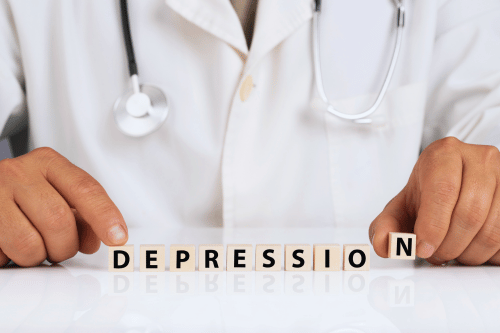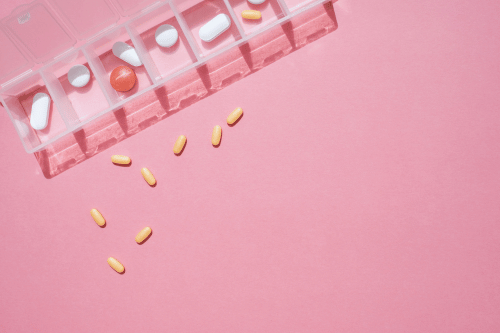

Understanding what are depressants is vital in identifying how these drugs affect the central nervous system and why they are often linked to substance abuse, addiction, and serious health risks. Depressants are a class of drugs that decrease neuronal activity in the brain, targeting areas that control arousal, behavior, and mood. They are commonly prescribed as medication for insomnia, seizure disorders, anxiety, and even pain management, often in the form of benzodiazepines, barbiturates, nonbenzodiazepines, or sedatives like zolpidem and eszopiclone.
However, misuse can lead to severe outcomes including physical dependence, drug withdrawal, and toxicity. Chronic use may impair cognitive function, reduce concentration, and affect neuron signaling. People abusing these drugs often mix them with alcoholic beverages, opioids, or analgesics, increasing the risk of respiratory system depression, coma, or death. Without proper supervision, the cycle of misuse and withdrawal can damage both the spinal cord and receptor function, making professional support from a treatment center essential.
Depressants act by enhancing the effect of gamma-aminobutyric acid (GABA), a key neurotransmitter that slows nerve impulses in the brain. This mechanism targets GABAA receptors, leading to relaxation, sedation, and reduced psychomotor agitation, which helps control panic, anxiety, and sleep disorders. The effect extends through the central nervous system, decreasing heart rate, blood pressure, and overall arousal levels.
At moderate levels, these drugs help calm the nervous system, reduce stress, and ease muscle tension. But in higher dose ranges, they can trigger adverse effects like dizziness, amnesia, vomiting, nausea, and somnolence. In severe misuse cases—especially when combined with other narcotics like oxycodone, hydrocodone, or codeine—users risk hypoventilation, shortness of breath, bradycardia, and unconsciousness. In such cases, depressant toxicity can lead to emergency conditions, making detox and harm reduction support at a certified treatment center critical.
There are several categories of depressants, each with distinct effects:

Doctors may prescribe depressants for:
At Sullivan Recovery, we closely monitor dose, treatment plans, and drug withdrawal symptoms for clients undergoing detox from depressants and other substances.
While these medications have valid medical uses, substance abuse is common. Taking more than the prescribed dose, combining depressants with other drugs like opiates, codeine, hydrocodone, oxycodone, or alcohol, increases the risk of respiratory system suppression, coma, or death. Chronic use may lead to tolerance, requiring higher doses to feel effects, and eventually, addiction.
Long-term depressant use may result in:
Many clients arrive at our treatment center after years of misusing depressants, often without knowing the risk of physical dependence, drug withdrawal, and toxicity.

Drug withdrawal from depressants can be life-threatening and must be medically supervised, especially when physical dependence has developed over long-term use. These symptoms occur as the central nervous system, brain, and neurotransmitter functions struggle to recalibrate without the depressant’s impact on GABAA receptors. This rebound effect can disrupt heart rate, blood pressure, and behavior, often requiring urgent care.
Sudden cessation can cause:
Withdrawal from benzodiazepines or barbiturates is especially dangerous due to their potency and direct effect on nerve inhibition. Drugs like diazepam, triazolam, clonazepam, and secobarbital require careful tapering, as stopping abruptly may result in serious adverse effects, coma, or death. At Sullivan Recovery, our treatment center offers 24/7 medically managed detox care using approved protocols and harm reduction strategies. We aim to stabilize each patient by managing symptoms, preventing toxicity, and supporting long-term recovery from substance abuse.
Repeated use changes how the brain functions, especially in areas that control mood, behavior, and decision-making. These changes lead to cravings and compulsive drug use. Addiction can occur even when taking prescribed medication if not used properly. A physician should always monitor use.
Signs of addiction to depressants include:
If you or a loved one shows these signs, a treatment center like Sullivan Recovery can help.

Combining depressants with other central nervous system suppressants—especially alcohol, opioids, or analgesics—can dangerously slow heart rate, breathing, and lead to unconsciousness or overdose. Common overdose symptoms include:
Opioid overdose combined with depressants often requires immediate detox and may require the use of naloxone. Sullivan Recovery provides 24/7 monitoring to prevent fatal outcomes during detox.
Depressants can be detected in urine, blood, or hair samples. Depending on the drug, results vary:
If you’re concerned about a drug test, or want to stop using, our staff at Sullivan Recovery can guide you through safe withdrawal and long-term recovery.
Depressants can severely affect mood, cause depression, or worsen mental illness. While some people ask, “What does depression medication do?” or “What do depression pills do?”—these are not the same as depressants. Antidepressants like SSRIs increase serotonin, while depressants reduce brain activity.
Abusing depressants can lead to:
When clients ask, “What are the best depression medications?”, we clarify the distinction between treatment medications and depressants often misused recreationally.

Most depressants act on GABAA receptors in the brain, promoting inhibition and reducing nerve activity throughout the central nervous system. This action helps suppress arousal, ease psychomotor agitation, and stabilize mood. Neurotransmitter regulation is key, and GABA is the primary chemical responsible for producing relaxation, sedation, and reduced stress levels.
Drugs like triazolam, alprazolam, zolpidem, and methaqualone bind to specific receptor sites, triggering hypnotic, anxiolytic, or sedative effects depending on the dose and type. These compounds may also produce analgesic effects in cases of chronic pain, and function as muscle relaxants or anesthesia agents. Other substances, such as barbiturates like pentobarbital or phenobarbital, enhance these effects but increase the risk of toxicity, amnesia, dizziness, and adverse effects—especially when mixed with alcoholic beverages, opioids, or other narcotics.
Even common prescriptions like diazepam, chlordiazepoxide, or clonazepam can lead to physical dependence, particularly if used outside medical guidelines. Long-term use affects neurons, disrupts normal neurotransmitter function, and may result in withdrawal, suicidal ideation, or addiction. At Sullivan Recovery, we carefully evaluate each patient for signs of misuse, monitor for depressant-related risks, and adjust medication plans to support detox, harm reduction, and recovery from substance abuse.
Harm reduction strategies aim to prevent injury or disease by promoting safe use and offering treatment alternatives. For those misusing alcohol, benzodiazepines, or barbiturates, we offer:
Detoxing from depressants is not a DIY process. We urge anyone dependent on these substances to enroll in a licensed treatment center.
To summarize, what are depressants? They are substances that suppress central nervous system activity by enhancing GABA action at GABAA receptors, leading to decreased arousal, heart rate, blood pressure, and nerve function. These drugs are often prescribed to treat insomnia, pain, anxiety, and seizure disorders, and include types like benzodiazepines, barbiturates, nonbenzodiazepines, and sedatives. Though medically useful, many depressants—such as alprazolam, diazepam, zolpidem, and phenobarbital—carry a high risk of physical dependence, addiction, and drug withdrawal.
While helpful under medical supervision, misuse can lead to severe substance abuse, toxicity, and overdose, especially when mixed with alcoholic beverages, opiates, or stimulants like amphetamine. Users may experience nausea, vomiting, unconsciousness, shortness of breath, bradycardia, or even coma. Without intervention, the impact on the brain, mood, and behavior can become life-threatening, increasing the risk of suicidal ideation, injury, and long-term health decline.
At Sullivan Recovery, our outpatient program supports individuals struggling with depressant abuse by offering structured detox, individualized therapy, and harm reduction strategies. We treat each patient with evidence-based care, addressing co-occurring mental health conditions, stress, and drug misuse patterns. If you’re concerned about your use or someone else’s, contact our treatment center today to start a recovery plan focused on safety, stability, and long-term healing.
At Sullivan Recovery, as an in-network provider we work with most insurance plans, such as:
And More
If you or a loved one are struggling with mental health challenges or substance abuse, reach out to Sullivan Recovery today. Our team of compassionate professionals is here to support your journey towards lasting well-being. Give us a call at 949-836-7180.
Yes. Even when used exactly as directed by a physician, depressants such as benzodiazepines or barbiturates can cause physical dependence over time. The body may adapt to the drug, leading to tolerance, which increases the risk of addiction and drug withdrawal symptoms if use is stopped suddenly.
The detection window varies by drug type, dose, and individual metabolism. For example, benzodiazepines can remain in the urine for several days, while some barbiturates may be detectable for up to two weeks. Factors like age, body fat, and liver health also influence how long these drugs stay in the body.
Some over-the-counter sleep aids do have depressant effects on the central nervous system, especially those containing antihistamines like diphenhydramine. While not as strong as prescription sedatives or hypnotics, they can still cause drowsiness, dizziness, and impaired coordination, especially when combined with alcoholic beverages or other medications.
While taking depressants, avoid drinking alcohol, using opioids, or taking other CNS depressants unless approved by a physician. Combining these substances can dangerously slow breathing, lower blood pressure, and increase the risk of coma, overdose, or death. You should also avoid operating heavy machinery due to possible somnolence and reduced concentration.